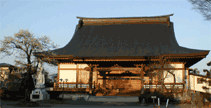  |
Lesson 3: I am Japanese.
Click here for the kana version.
|
The word for Japan in Japanese is Nihon. (Or Nippon) Ni means sun and hon means root. So, Nihon means "origin of the sun." Japan is also known as the "Land of the Rising Sun." There are several words for 'person' in Japanese. Hito is the noun 'person.' If you wanted to say "Who is that person?" you would say "Ano hito wa dare desu ka?" Ano means 'that over there.' (This will be discussed more in Lesson 4.) Likewise, one says onna no hito for 'woman' and otoko no hito for 'man.' These mean 'female person' and 'male person' and are much more polite than just saying onna or otoko which sound insulting alone. The other two ways of indicating people are the suffixes -nin and -jin. Adding the suffix -jin to the name of a country makes the name of the nationality of that country. Nihon-jin means 'Japanese person.' We will discuss the use of -nin later. Similarly, one can add the suffix -go
to the end of a country word and it becomes the language of the country.
Note that there are exceptions to this as some countries share common
languages. |
|||
| Examples: | |||
| Japan |
Country Nihon |
People |
Language Nihongo |
| The U.S. | Amerika | Amerikajin | Eigo |
| Germany | Doitsu | Doitsujin | Doitsugo |
| France | Furansu | Furansujin | Furansugo |
| Italy | Itaria |
Itariajin | Itariago |
| Australia | Oosutoraria |
Oosutorariajin | Eigo |
| Canada | Kanada |
Kanadajin | Eigo/Furansugo |
| England | Igirisu | Igirisujin | Eigo |
| Mexico | Mekishiko |
Mekishikojin | Supeingo |
| Spain | Supein |
Supeinjin | Supeingo |
| Portugal | Porutogaru |
Porutogarujin | Porutogarugo |
| Brazil | Burajiru | Burajirujin | Porutogarugo |
| Korea, S. | Kankoku | Kankokujin | Kankokugo |
|
Lesson 3 Vocabulary: nihon |
Japan |
||